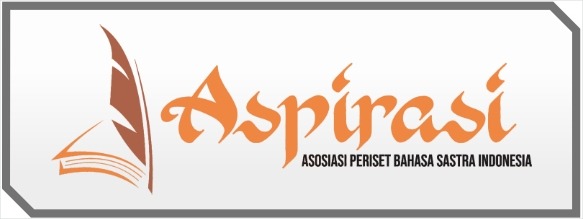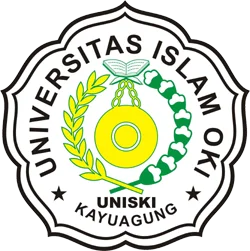Bridging Gaps in English Writing: Syntactic, Lexical, Discourse, and Cognitive Challenges among Thai University Students
DOI:
https://doi.org/10.61994/jee.v3i1.902Keywords:
Syntactic, Lexical, Discourse, Cognitive, Effective WritingAbstract
Writing in English is widely regarded as the most demanding communicative ability among Thai undergraduates because it requires simultaneous control of grammar, lexis, rhetorical organization, and content, while also mobilizing the cognitive processes used in listening, reading, and speaking. To identify how this competence can be strengthened, the present quantitative study investigated eighty students whose degree programmes are delivered exclusively in English, making them an appropriate cohort for analysing difficulties in four domains: (1) syntactic competence, (2) lexical competence, (3) discourse competence, and (4) cognitive competence. Descriptive statistics, one-way analysis of variance (ANOVA), and Pearson correlation were applied. Self-assessment data revealed strong positive correlations among all competence indicators on both ANOVA and Pearson tests, suggesting that perceived proficiency in one domain is closely linked to proficiency in the others. Reported writing challenges similarly showed significant interrelationships through Pearson analysis, yet ANOVA detected no significant group differences, indicating wide individual variation. When overall self-assessed competence was correlated with overall perceived challenges, the Pearson coefficient showed no meaningful relationship, implying that students who feel highly competent may still experience specific obstacles, and vice versa. These findings highlight the need to reassess and refine pedagogical approaches to English writing for Thai university learners, with targeted, domain-specific support aimed at integrating syntactic, lexical, discourse, and cognitive skills to foster balanced, sustainable growth in academic writing performance. Therefore, curriculum designers, language teachers, and policymakers should collaborate in developing adaptive writing curricula informed by data-driven insights.
References
Arihasta, D. (2023). Non-English major undergraduate students’ difficulties in argumentative writing at Mae Fah Luang Thailand. LLT Journal: A Journal on Language and Language Learning, 26(2), 732-748.
Chatdecha, C. & Liangpanit, C. (2023). “Thai Graduate Students' Opinions on Anxiety in Writing Academic Papers.” The Journal of Sirindhornparidhat, 24 (1). 539-555.
Creswell, J. W. Research design: Qualitative, quantitative, and mixed methods approaches. (Fourth edition). SAGE.
Dhanarattigannon, J., & Thienpermpool, P. (2022). EFL tertiary learners’ perceptions of self-assessment on writing in English. LEARN Journal: Language Education and Acquisition Research Network, 15(2), 521-545.
EF Education First. (2023). EF EPI, EF English Proficiency Index, A Ranking of 113 Countries and Regions by English Skills. Signum International AG.
Herayati, D. F. (2020). Teaching writing through self-assessment and analytical scoring. International Journal of Scientific & Technology Research, 9(2), 4268-4272.
Hinnon, A. (2014). Common errors in English writing and suggested solutions of Thai university students. Journal of Humanities and Social Sciences of Khon Kaen University, 31(2), 166-180.
Kaosayapandhu, M. (2023). Application for grammar skills: A case study of Thai EFL undergraduates. PASAA, 67(1), 309-329.
Mak, P., & Wong, K. (2018). Self-regulation through portfolio assessment in writing classrooms. English Language Teaching. 72(1). 49-61.
Meniado, J. C., Huyen, D. T. T., Panyadilokpong, N., & Lertkomolwit, P. (2024). Using ChatGPT for second language writing: Experiences and perceptions of EFL learners in Thailand and Vietnam. Computers and Education: Artificial Intelligence, 7. 2-9.
Nguyen, T. T. L. & Suwannabubpha, S. (2021). EFL writing at Thai secondary schools: teachers and students’ views, difficulties and expectations. Language Related Research, 12(3), 187-214.
Pongsukvajchakul, P. (2023). Analysis of Thai EFL university students’ needs in learning English paragraph writing. Journal of Management Sciences, 2(2), 44-59.
Rao, P. (2017). Developing writing skills among the EFL/ESL learners. Research Journal of English (RJOE), 2(3), 52-63.
Sharma, R., Jain, A., Gupta, N., Garg, S., Batta, M., & Dhir, S. K. (2016). Impact of self-assessment by students on their learning. International Journal of Applied and Basic Medical Research, 6(3), 226-229.
Srisawat, C., & Poonpon, K. (2023). Common Grammatical Errors in Academic Writing: How are They Treated by NNE Raters?. Journal of Multidisciplinary in Humanities and Social Sciences, 6(2), 540–557.
Tantiwich, K. & Sinwongsuwat, K. (2021). Thai university students’ problems of language use in English conversation. LEARN Journal: Language Education and Acquisition Research Network, 14(2), 598-626.
Umar, A., Ajmal, M., & Ajmal, F. (2023). Academic writing problems faced by ESL learners in higher education institutions. University of Wah Journal of Social Sciences, 6(1), 59-70.
Waluyo, B. (2019) Thai first-year university students’ English proficiency on CEFR levels: A case study of Walailak University, Thailand. The New English Teacher, 3(2), 51-71.
Woodeson, K., Limna, P., & Nga-Fa, N. (2023). Students' vocabulary learning difficulties and teachers' strategies: A qualitative case study of Ammartpanichnukul school, Krabi in Thailand. Advance Knowledge for Executives (AKE), 2(1), 1-9.
Young, D. (2021). The hierarchy of Thailand and its effects on English language learning. LEARN Journal: Language Education and Acquisition Research Network, 14(1), 15-27.
Downloads
Published
Issue
Section
License
Copyright (c) 2025 Dr. Don August de Guzman - Delgado

This work is licensed under a Creative Commons Attribution-ShareAlike 4.0 International License.

Journal of English Education by https://jurnal.dokicti.org/index.php/JCSS/index
is licensed under a Creative Commons Attribution-ShareAlike 4.0 International Licensel
















